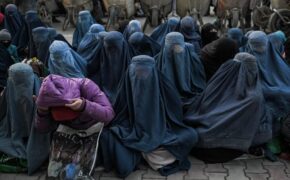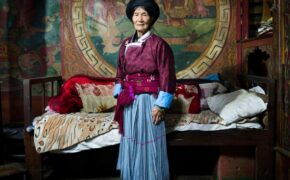No More Stolen Sisters
The crisis of missing and murdered Indigenous women, girls, and Two-Spirit people (MMIWG2S) in North America is not an isolated issue but the result of centuries of systemic violence, colonization, and cultural genocide. The “No More Stolen Sisters” movement seeks to address this ongoing tragedy by bringing awareness to the historical and contemporary factors that contribute to the disproportionate violence faced by Indigenous communities.
For more posts on Social Justice, check here.
The FIght for Justice – No More Stolen Sisters
Historical Context: Colonization and Genocide
The arrival of European settlers in the Americas marked the beginning of a devastating period for Indigenous populations. Through warfare, forced displacement, and the introduction of diseases, Indigenous communities suffered massive population declines. Policies such as the Indian Removal Act of 1830 in the United States led to the forced relocation of thousands of Native Americans, resulting in events like the Trail of Tears, where many perished due to harsh conditions.
In Canada, similar patterns emerged. The establishment of the residential school system aimed to assimilate Indigenous children by removing them from their families and eradicating their cultures. These institutions were sites of widespread abuse, neglect, and cultural suppression, leaving lasting scars on Indigenous communities .

The Crisis of Missing and Murdered Indigenous Women and Girls
Indigenous women and girls in North America face disproportionately high rates of violence. In Canada, they are at least three times more likely to experience violence and six times more likely to be murdered than non-Indigenous women . Factors contributing to this crisis include systemic racism, socio-economic disparities, and the legacy of colonial policies that have marginalized Indigenous communities.
The lack of adequate response from law enforcement and government agencies has further exacerbated the issue, leading to calls for justice and accountability.
The “No More Stolen Sisters” Movement
The “No More Stolen Sisters” campaign, initiated by Amnesty International Canada, aims to raise awareness about the violence faced by Indigenous women and girls and to advocate for systemic changes to address the root causes of this crisis . The movement emphasizes that violence against Indigenous women is not only a social issue but a human rights concern that requires immediate action.
Symbolism and Advocacy
Symbols such as the red dress have become powerful representations of the MMIWG2S crisis. The red dress, often displayed in public spaces, serves as a visual reminder of the women who are missing or have been murdered, bringing visibility to their stories and the broader issue. The red handprint over the mouth has also emerged as a symbol, representing the silencing of Indigenous women and the need to amplify their voices.

National Inquiries and Reports
In response to growing awareness and advocacy, the Canadian government launched the National Inquiry into Missing and Murdered Indigenous Women and Girls. The inquiry’s final report, titled “Reclaiming Power and Place,” concluded that the violence against Indigenous women and girls amounts to a form of genocide, rooted in colonialism and systemic discrimination . The report includes 231 Calls for Justice, urging transformative legal and social changes to address the crisis.
Raise Your Voice and Support the Movement
The “No More Stolen Sisters” movement highlights the urgent need to confront the historical and ongoing injustices faced by Indigenous women, girls, and Two-Spirit people in North America. By acknowledging the deep-rooted causes of this crisis and implementing the recommendations from national inquiries, society can move towards healing and justice for Indigenous communities.
For further information and resources, you can visit:
- Amnesty International Canada’s No More Stolen Sisters Campaign: Amnesty International Canada
- Final Report of the National Inquiry into Missing and Murdered Indigenous Women and Girls: mmiwg-ffada.ca
- Native Women’s Wilderness: Native Womens Wilderness
By educating ourselves and others, supporting Indigenous-led initiatives, and advocating for systemic change, we can contribute to ending the violence and ensuring that there are no more stolen sisters.

Thank You for Reading!
I hope you enjoyed this post and found it insightful. If you did, feel free to subscribe to receive updates about future posts via email, leave a comment below, or share it with your friends and followers. Your feedback and engagement mean a lot to me, and it helps keep this community growing.
If you’re interested in diving deeper into topics like this, don’t forget to check out the Donc Voila Quoi Podcast, where I discuss these ideas in more detail. You can also follow me on Pinterest @doncvoilaquoi and Instagram @jessielouisevernon, though my accounts have been shut down before (like my old @doncvoilaquoi on Instagram), so keep an eye out for updates.
Amazon has graciously invited me to take part in their Amazon Influencer Program. As such, I now have a storefront on Amazon. I warmly invite you to explore this carefully selected collection. Please be advised that some of my posts may include affiliate links. If you click on an affiliate link and subsequently make a purchase, I may receive a modest commission at no additional cost to you. Utilizing these affiliate links helps to support my ongoing commitment to providing thoughtful and genuine content.




Comments (0)